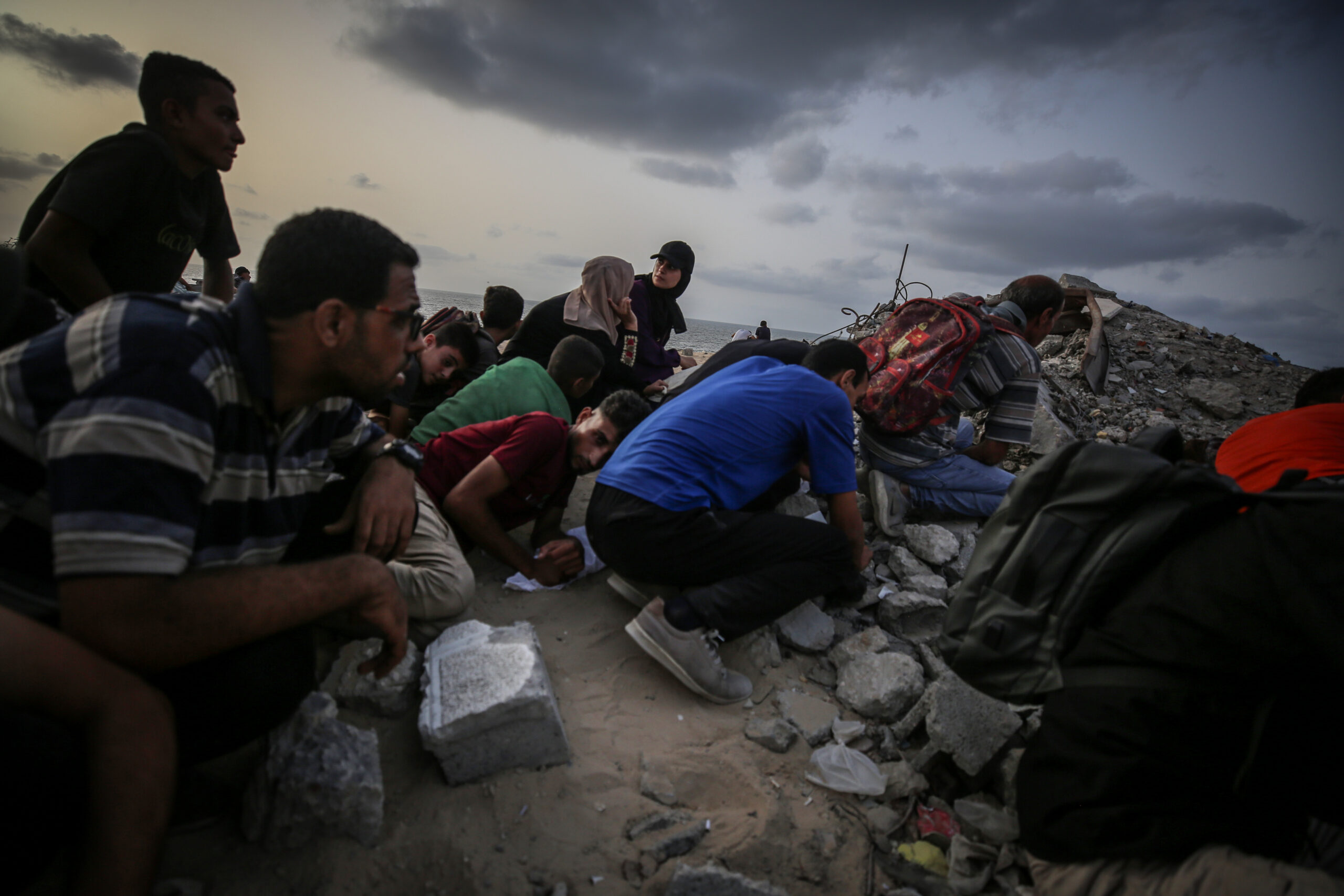
Nadine Osman
Israel has closed almost all its military investigations into alleged war crimes or abuses committed by its forces in Gaza and the West Bank since the start of the war in October 2023, with most cases ending without charges or findings of fault, according to a new report by the conflict monitoring group Action on Armed Violence (AOAV).
The London-based organisation found that out of 52 publicly reported cases in which the Israeli military said it would investigate harm to Palestinian civilians, 46—equivalent to roughly eight in nine—have either been closed without any accountability or remain unresolved.
The 52 cases involve the deaths of at least 1,303 Palestinians and injuries to 1,880 others, based on reports in English-language media.
Several of the most serious and widely condemned incidents remain under review. Among them are the killing of at least 112 Palestinians queueing for flour in Gaza City in February 2024; an airstrike in Rafah in May 2024 that set fire to a tent camp, killing 45 people; and the killing of 31 civilians at a food distribution point in Rafah on June 1, after Israeli forces reportedly opened fire.
The Israel Defence Forces (IDF) initially dismissed the reports of the June 1 incident as “false,” but later told The Guardian that the matter was “still under review.”
AOAV researchers Iain Overton and Lucas Tsantzouris stated that the data indicated a pattern of avoidance and a failure to deliver justice. “These are not marginal cases,” said Overton. “These are incidents that drew international outrage and required transparent investigations. The lack of accountability sends a deeply troubling message.”
The IDF insists that it investigates what it calls “exceptional incidents” during operational activity and that its processes comply with both Israeli and international legal standards. The system relies on internal fact-finding assessments (FFAs) and, when necessary, criminal investigations conducted by the military police under the supervision of the Military Advocate General. However, AOAV found that these mechanisms have become increasingly opaque and slow-moving as the death toll from the war has risen.
Out of the 52 cases tracked by AOAV, only one has led to a criminal conviction. In February 2025, an IDF reservist was sentenced to seven months in prison for aggravated abuse of Palestinian detainees at the Sde Teiman detention centre, where he repeatedly assaulted bound and blindfolded prisoners with his fists, a baton, and his rifle. Five other cases resulted in disciplinary measures.
In one of the most high-profile incidents, a colonel and a major were dismissed, and three other commanders were reprimanded, following an Israeli airstrike in April 2024 that killed seven international aid workers from the US-based charity World Central Kitchen. The IDF described the strike as a “grave mistake stemming from a serious failure due to mistaken identification.” However, the charity contended that the investigation’s swift pace and limited transparency rendered it “lacking credibility.”
That leaves 46 cases—seven closed without any finding of fault and 39 still under review or without resolution. “This includes four fatal incidents over the past month in which Palestinians were killed near food distribution centres throughout Gaza.”
In response to the report, the IDF said that all allegations undergo an initial examination and that, depending on the available evidence, some are escalated to full criminal investigations. In some cases, the FFA team determines whether there is a “reasonable suspicion of criminal misconduct” before referring the matter to the military advocate general.
Critics of the process, including the Israeli human rights group Yesh Din, say that the system is deeply flawed. They note that FFA enquiries can take years to complete and rarely lead to legal consequences. Of 664 investigations into IDF actions during previous Gaza campaigns in 2014, 2018–19, and 2021, only one led to prosecution.
In August 2024, the IDF reported that the FFA had collected information on “hundreds of incidents” related to the ongoing war. The military advocate general’s office had opened 74 criminal investigations.
Of these, 52 concerned the death or mistreatment of detainees, 13 related to the theft of enemy ammunition, three involved the destruction of civilian property without military necessity, and six dealt with allegations of unlawful use of force. However, only a minority of these cases pertained to potential war crimes committed during combat operations.
AOAV noted that its own methodology differs from that of the Israeli military, as it tracks cases where investigations were publicly reported or implied and includes incidents in both Gaza and the occupied West Bank.
The IDF’s official data may not capture the full scope of civilian harm or international concern.
The IDF maintains that “dozens” of military police investigations remain ongoing and that many FFA reviews have already been completed and passed on to the military advocate general for further legal assessment.
Yet as the number of civilian deaths in Gaza continues to rise—now exceeding 60,000, according to Palestinian health authorities—confidence in Israel’s internal accountability mechanisms continues to erode.
International calls for independent and transparent investigations into alleged war crimes are growing louder, amid mounting evidence that internal processes are failing to deliver justice for Palestinian victims or meaningful consequences for perpetrators.
Photo: Palestinians take cover as Israeli forces open fire on a crowd waiting for humanitarian aid near the Zikim border crossing in Gaza City, Gaza, on July 29.
(Credit: Ali Jadallah/AA)
GAZA-RELATED NEWS
Editorial – Weaponised famine in Gaza: a starvation of conscience in the West
Salah questions UEFA’s sanitised tribute to Palestinian footballer slain in Gaza
Düsseldorf cancels deal with Israeli player amid fan outrage over genocidal social media posts
‘Don’t let Gaza die,’ over 200 German stars urge Merz to stop arming Israel
Support for Palestinian Statehood in Britain extends beyond Muslim voters, YouGov poll finds